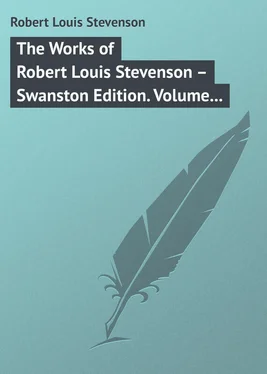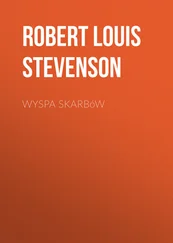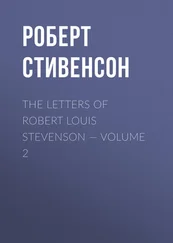Robert Stevenson - The Works of Robert Louis Stevenson – Swanston Edition. Volume 24
Здесь есть возможность читать онлайн «Robert Stevenson - The Works of Robert Louis Stevenson – Swanston Edition. Volume 24» — ознакомительный отрывок электронной книги совершенно бесплатно, а после прочтения отрывка купить полную версию. В некоторых случаях можно слушать аудио, скачать через торрент в формате fb2 и присутствует краткое содержание. Жанр: foreign_prose, на английском языке. Описание произведения, (предисловие) а так же отзывы посетителей доступны на портале библиотеки ЛибКат.
- Название:The Works of Robert Louis Stevenson – Swanston Edition. Volume 24
- Автор:
- Жанр:
- Год:неизвестен
- ISBN:нет данных
- Рейтинг книги:3 / 5. Голосов: 1
-
Избранное:Добавить в избранное
- Отзывы:
-
Ваша оценка:
- 60
- 1
- 2
- 3
- 4
- 5
The Works of Robert Louis Stevenson – Swanston Edition. Volume 24: краткое содержание, описание и аннотация
Предлагаем к чтению аннотацию, описание, краткое содержание или предисловие (зависит от того, что написал сам автор книги «The Works of Robert Louis Stevenson – Swanston Edition. Volume 24»). Если вы не нашли необходимую информацию о книге — напишите в комментариях, мы постараемся отыскать её.
The Works of Robert Louis Stevenson – Swanston Edition. Volume 24 — читать онлайн ознакомительный отрывок
Ниже представлен текст книги, разбитый по страницам. Система сохранения места последней прочитанной страницы, позволяет с удобством читать онлайн бесплатно книгу «The Works of Robert Louis Stevenson – Swanston Edition. Volume 24», без необходимости каждый раз заново искать на чём Вы остановились. Поставьте закладку, и сможете в любой момент перейти на страницу, на которой закончили чтение.
Интервал:
Закладка:
To W.E. Henley
The first paragraph of the following refers to contributions of R. L. S. to the Magazine of Art under Mr. Henley’s editorship: —
La Solitude, Hyères [Autumn 1883].DEAR LAD, – Glad you like Fontainebleau . I am going to be the means, under heaven, of aërating or literating your pages. The idea that because a thing is a picture-book all the writing should be on the wrong tack is triste but widespread. Thus Hokusai will be really a gossip on convention, or in great part. And the Skelt will be as like a Charles Lamb as I can get it. The writer should write, and not illustrate pictures: else it’s bosh…
Your remarks about the ugly are my eye. Ugliness is only the prose of horror. It is when you are not able to write Macbeth that you write Thérèse Raquin . Fashions are external: the essence of art only varies in so far as fashion widens the field of its application; art is a mill whose thirlage, in different ages, widens and contracts; but, in any case and under any fashion, the great man produces beauty, terror, and mirth, and the little man produces cleverness (personalities, psychology) instead of beauty, ugliness instead of terror, and jokes instead of mirth. As it was in the beginning, is now, and shall be ever, world without end. Amen!
And even as you read, you say, “Of course, quelle rengaine !”
R. L. S.To W. H. Low
Manhattan mentioned below is the name of a short-lived New York magazine, the editor of which had asked through Mr. Low for a contribution from R. L. S.
La Solitude, Hyères, October [1883].MY DEAR LOW, – … Some day or other, in Cassell’s Magazine of Art, you will see a paper which will interest you, and where your name appears. It is called Fontainebleau: Village Communities of Artists , and the signature of R. L. Stevenson will be found annexed.
Please tell the editor of Manhattan the following secrets for me: 1 st , That I am a beast; 2 nd , that I owe him a letter; 3 rd , that I have lost his, and cannot recall either his name or address; 4 th , that I am very deep in engagements, which my absurd health makes it hard for me to overtake; but 5 th , that I will bear him in mind; 6 th and last, that I am a brute.
My address is still the same, and I live in a most sweet corner of the universe, sea and fine hills before me, and a rich variegated plain; and at my back a craggy hill, loaded with vast feudal ruins. I am very quiet; a person passing by my door half startles me; but I enjoy the most aromatic airs, and at night the most wonderful view into a moonlit garden. By day this garden fades into nothing, overpowered by its surroundings and the luminous distance; but at night and when the moon is out, that garden, the arbour, the flight of stairs that mount the artificial hillock, the plumed blue gum-trees that hang trembling, become the very skirts of Paradise. Angels I know frequent it; and it thrills all night with the flutes of silence. Damn that garden; – and by day it is gone.
Continue to testify boldly against realism. Down with Dagon, the fish god! All art swings down towards imitation, in these days, fatally. But the man who loves art with wisdom sees the joke; it is the lustful that tremble and respect her ladyship; but the honest and romantic lovers of the Muse can see a joke and sit down to laugh with Apollo.
The prospect of your return to Europe is very agreeable; and I was pleased by what you said about your parents. One of my oldest friends died recently, and this has given me new thoughts of death. Up to now I had rather thought of him as a mere personal enemy of my own; but now that I see him hunting after my friends, he looks altogether darker. My own father is not well; and Henley, of whom you must have heard me speak, is in a questionable state of health. These things are very solemn, and take some of the colour out of life. It is a great thing, after all, to be a man of reasonable honour and kindness. Do you remember once consulting me in Paris whether you had not better sacrifice honesty to art; and how, after much confabulation, we agreed that your art would suffer if you did? We decided better than we knew. In this strange welter where we live, all hangs together by a million filaments; and to do reasonably well by others, is the first pre-requisite of art. Art is a virtue; and if I were the man I should be, my art would rise in the proportion of my life.
If you were privileged to give some happiness to your parents, I know your art will gain by it. By God it will! — Sic subscribitur ,
R. L. S.To R. A. M. Stevenson
MY DEAR BOB, – Yes, I got both your letters at Lyons, but have been since then decading in several steps. Toothache; fever; Ferrier’s death; lung. Now it is decided I am to leave to-morrow, penniless, for Nice to see Dr. Williams.
I was much struck by your last. I have written a breathless note on Realism for Henley; a fifth part of the subject hurriedly touched, which will show you how my thoughts are driving. You are now at last beginning to think upon the problems of executive, plastic art, for you are now for the first time attacking them. Hitherto you have spoken and thought of two things – technique and the ars artium , or common background of all arts. Studio work is the real touch. That is the genial error of the present French teaching. Realism I regard as a mere question of method. The “brown foreground,” “old mastery,” and the like, ranking with villanelles, as technical sports and pastimes. Real art, whether ideal or realistic, addresses precisely the same feeling, and seeks the same qualities – significance or charm. And the same – very same – inspiration is only methodically differentiated according as the artist is an arrant realist or an arrant idealist. Each, by his own method, seeks to save and perpetuate the same significance or charm; the one by suppressing, the other by forcing, detail. All other idealism is the brown foreground over again, and hence only art in the sense of a game, like cup and ball. All other realism is not art at all – but not at all. It is, then, an insincere and showy handicraft.
Were you to re-read some Balzac, as I have been doing, it would greatly help to clear your eyes. He was a man who never found his method. An inarticulate Shakespeare, smothered under forcible-feeble detail. It is astounding to the riper mind how bad he is, how feeble, how untrue, how tedious; and, of course, when he surrendered to his temperament, how good and powerful. And yet never plain nor clear. He could not consent to be dull, and thus became so. He would leave nothing undeveloped, and thus drowned out of sight of land amid the multitude of crying and incongruous details. There is but one art – to omit! O if I knew how to omit, I would ask no other knowledge. A man who knew how to omit would make an Iliad of a daily paper.
Your definition of seeing is quite right. It is the first part of omission to be partly blind. Artistic sight is judicious blindness. Sam Bough must have been a jolly blind old boy. He would turn a corner, look for one-half or quarter minute, and then say, “This’ll do, lad.” Down he sat, there and then, with whole artistic plan, scheme of colour, and the like, and begin by laying a foundation of powerful and seemingly incongruous colour on the block. He saw, not the scene, but the water-colour sketch. Every artist by sixty should so behold nature. Where does he learn that? In the studio, I swear. He goes to nature for facts, relations, values – material; as a man, before writing a historical novel, reads up memoirs. But it is not by reading memoirs that he has learned the selective criterion. He has learned that in the practice of his art; and he will never learn it well, but when disengaged from the ardent struggle of immediate representation, of realistic and ex facto art. He learns it in the crystallisation of day-dreams; in changing, not in copying, fact; in the pursuit of the ideal, not in the study of nature. These temples of art are, as you say, inaccessible to the realistic climber. It is not by looking at the sea that you get
Читать дальшеИнтервал:
Закладка:
Похожие книги на «The Works of Robert Louis Stevenson – Swanston Edition. Volume 24»
Представляем Вашему вниманию похожие книги на «The Works of Robert Louis Stevenson – Swanston Edition. Volume 24» списком для выбора. Мы отобрали схожую по названию и смыслу литературу в надежде предоставить читателям больше вариантов отыскать новые, интересные, ещё непрочитанные произведения.
Обсуждение, отзывы о книге «The Works of Robert Louis Stevenson – Swanston Edition. Volume 24» и просто собственные мнения читателей. Оставьте ваши комментарии, напишите, что Вы думаете о произведении, его смысле или главных героях. Укажите что конкретно понравилось, а что нет, и почему Вы так считаете.










